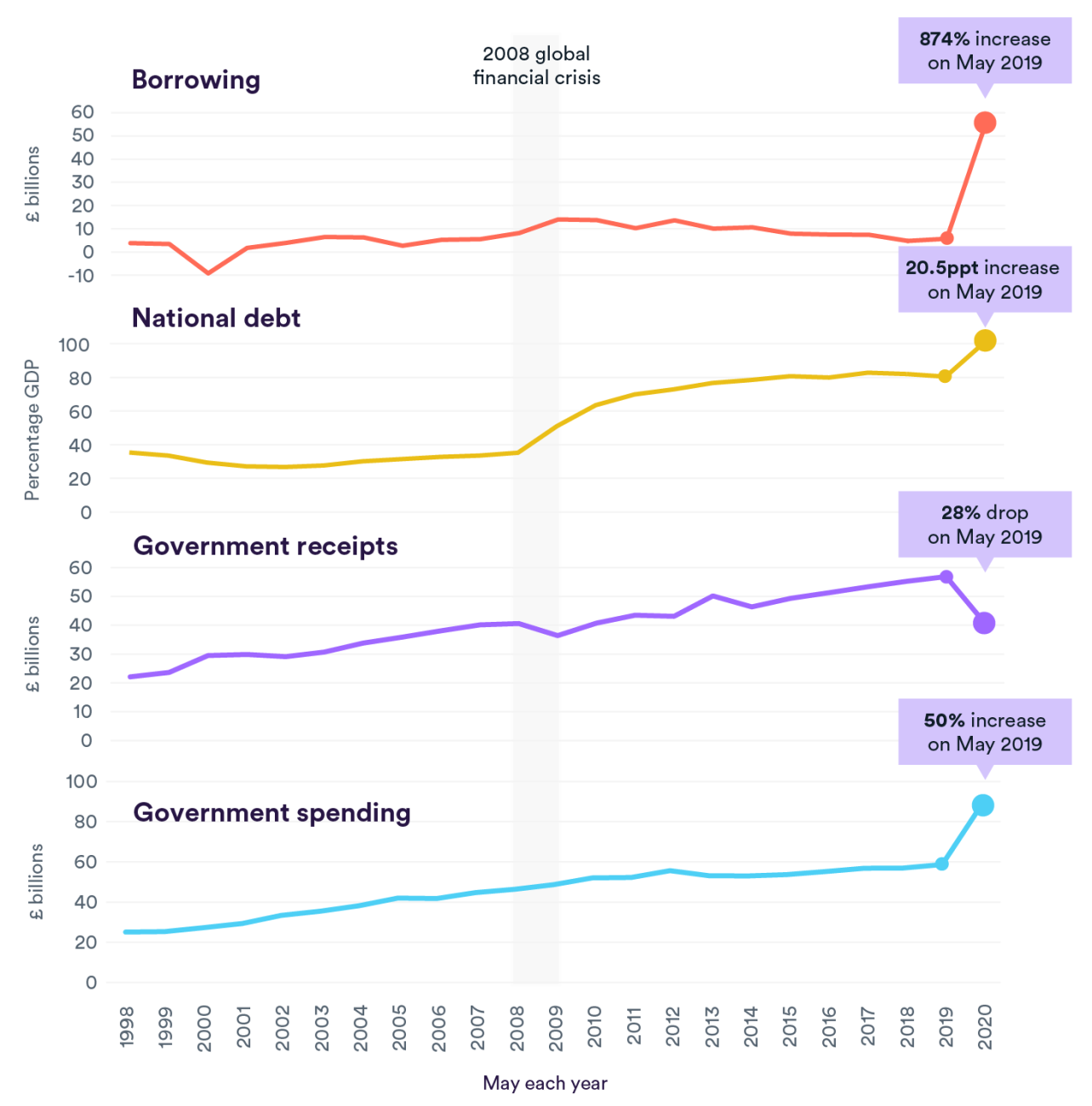The impact of the coronavirus pandemic on public finances around the world has been immediate and massive. In the UK, a combination of lockdown measures and the need for huge boosts in public spending has, in just a few months, outweighed the impact wrought by the 2008 global financial crisis.
In order to finance its activities, in May this year the government borrowed £55.2 billion compared to just £5.7 billion in May 2019. Increases in day-to-day borrowing – the deficit – has added to the stock of national debt, pushing it from just over 80% of GDP in May last year to nearly 101% this May. This is the first time debt has exceeded total GDP since 1963.
The shuttering of the economy has affected both supply and demand. Private spending has decreased and incomes have dropped. Consequently tax revenues have also fallen and government receipts have dropped from nearly £57 billion last May to around £41 billion this May.
At the same time as its income fell, government spending increased over the last few months – up 50% in May compared to a year earlier – as it financed furlough schemes and increases in NHS and other Covid-related expenditure.
While the Bank of England’s chief economist, Andy Haldane, has suggested there are signs that the economy is improving and could snap back in a ‘V-shaped’ recovery, he also warns of a potentially slower improvement in unemployment.
The medium and longer term implications of all this on health and care services remains uncertain. The pandemic has not only had a huge impact on the economy and public finances, but the NHS and care services too. How, and how quickly, the economy recovers (particularly regarding longer-term impacts on different groups in society) together with government decisions about public finances will affect both the demand for and supply of health and care across the UK.

